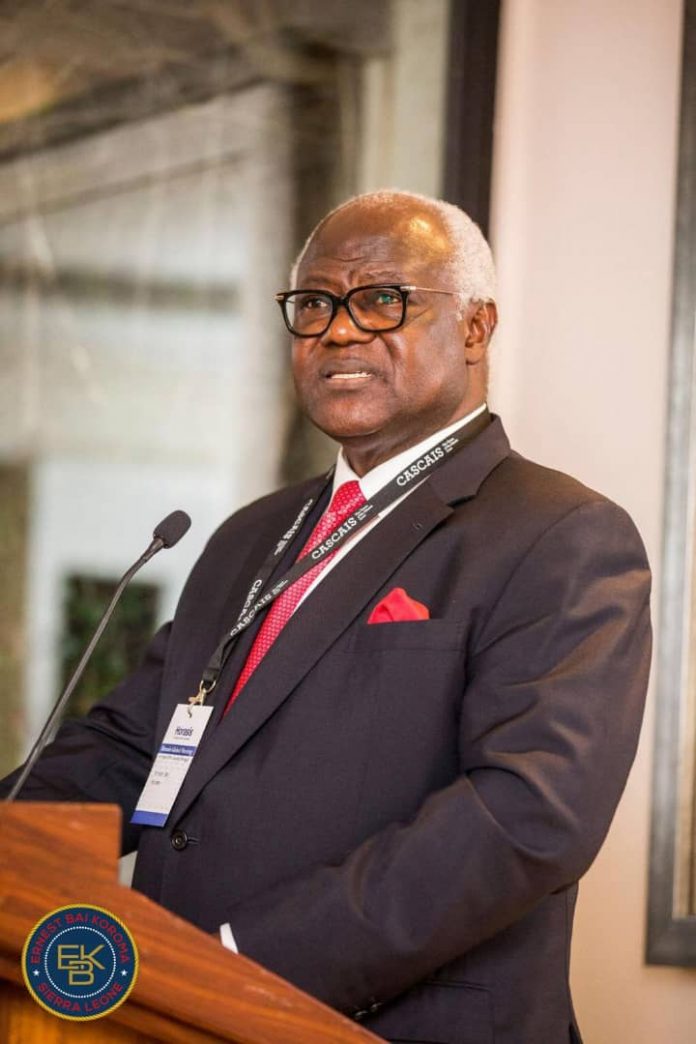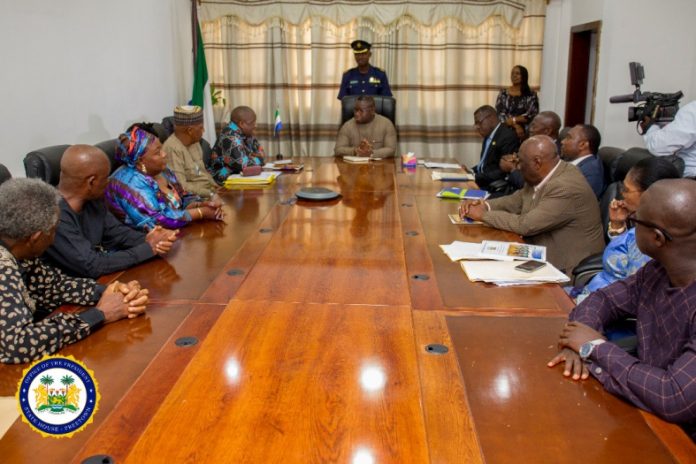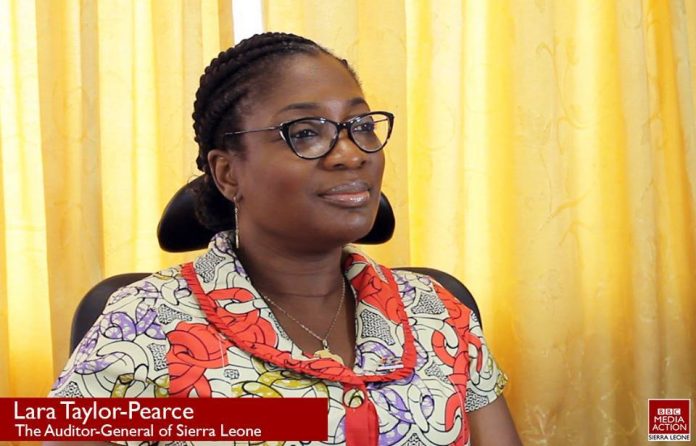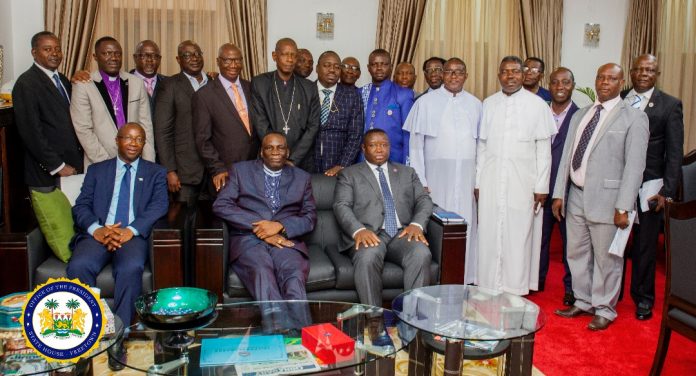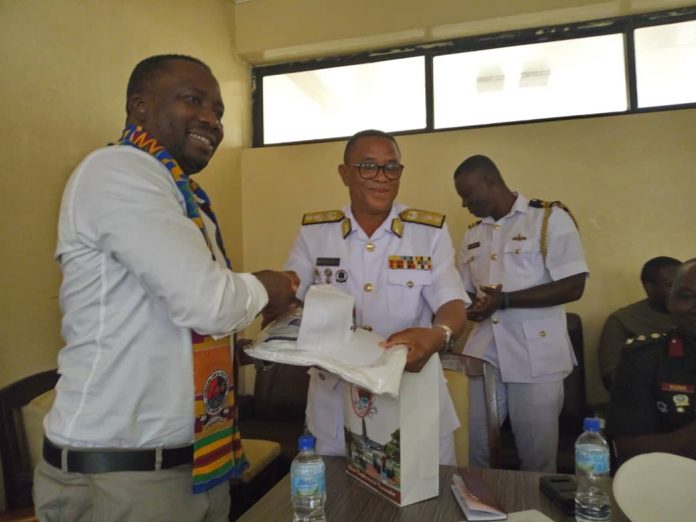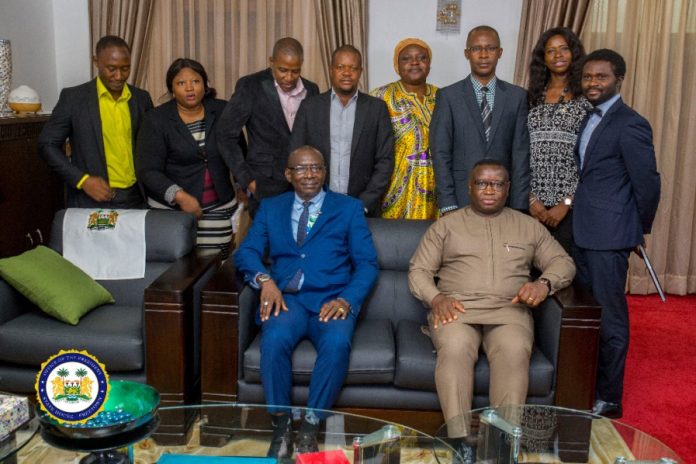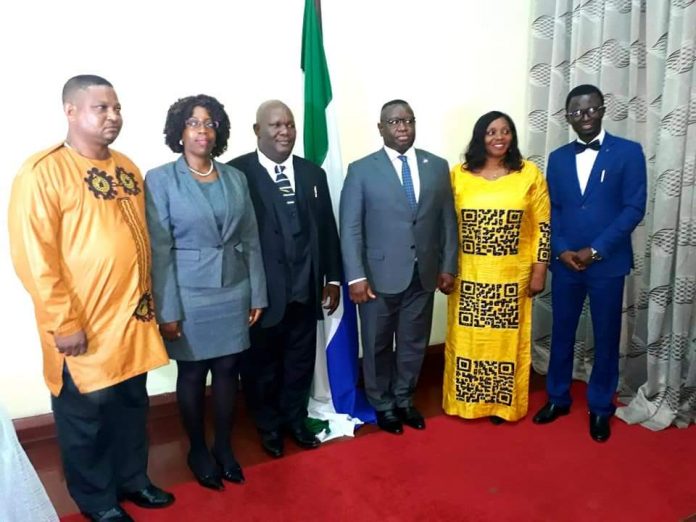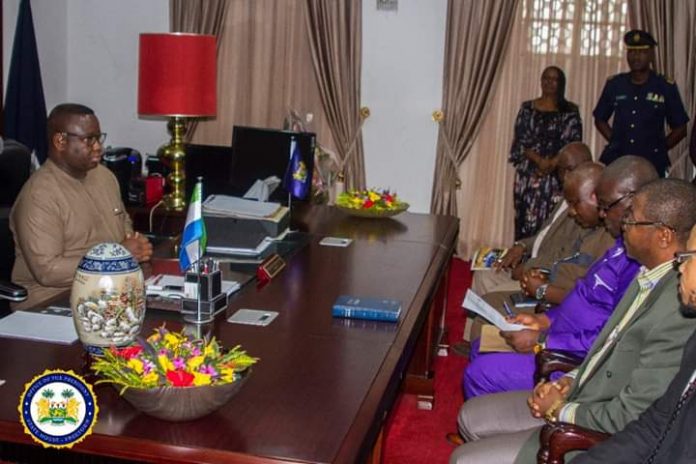Sierra Leone’s statesman, former President Ernest Koroma, has made a commitment to advocate for ‘soldiers of peace’ in Africa who will be engaged to contribute in building their nations’ and the continent’s infrastructure in line with the Sustainable Development Goals.
The establishment of an African Peace Engineering Corps is a proposal that seeks to dedicate a small % of soldiers to *wage peace and not war* and has been commended around the world as the way to go for the continent’s peace and development.
World renowned experts in peace keeping and reconciliation who participated in a meeting of the minds came up with the visionary idea during a working peace dinner at the 2019 Horasis Leading Global Change Meeting held in Cascais, Portugal.
The former President, who was speaking to the BBC for the first time since stepped from office in 2018, was VERY clear that his role is to rally round his former peers in the continent to consider the proposal.
“There’s a huge potential in utilising the various expertise lodged within the ranks of the military in building social infrastructure even at peace time but ultimately, it is a decision for African leaders to make”, the former President emphasized.
Former President Ernest Koroma, well regarded among his peers across Africa, says he would dedicate his retirement to this initiative until it comes to fruition by engaging at the subregional level with ECOWAS and then at the continental level with the African Union.
The team of notable experts in peace and reconciliation who presented the idea to Sierra Leone’s former President include:
Mr.Stephan Hecht – Chief Executive Peace Maker, Million Peace Maker (Canada) https://www.millionpeacemakers.org
Ms Isabel Maxwell, Ambassador, Shared Studios (USA) https://www.sharedstudios.com
Canon Sarah Snyder, Archbishop of Canterbury’s Adviser for Reconciliation (UK) The Rose Castle Foundation https://rosecastle.foundation
Mr. Jasper Zimmermann Center for the Future Peace Quest (Germany)
Franya E Cabral Ruiz, President of Solid Investments Group , Cross-Cultural Facilitation
www.solidinvestmentsgroup.com
“Horasis was founded on the principle that tackling the world’s most pressing economic, social, and political issues necessitates productive dialogue and collective collaboration,” said Frank-Jürgen Richter, Chairman of Horasis.
The Horasis Global Meeting provides a platform to explore and foster cooperation, impact investing and sustainable growth.
This year, politicians and business leaders met to debate policies on globalization. Over the four-day event, talks were held on sustainable development, populism, climate change, cryptocurrencies, the next financial crisis, immersive technologies, diversity in the workplace, the fourth industrial revolution, the post-truth era, halting sexual harassment, modeling sustainable migration, and blockchain.

